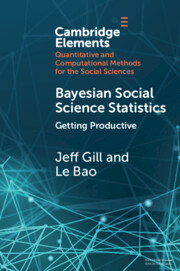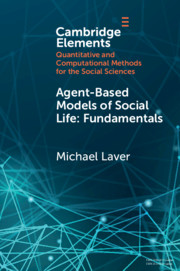Bayesian Social Science Statistics
This Element introduces the basics of Bayesian regression modeling using modern computational tools. This Element only assumes that the reader has taken a basic statistics course and has seen Bayesian inference at the introductory level of Gill and Bao (2024). Some matrix algebra knowledge is assumed but the authors walk carefully through the necessary structures at the start of this Element. At the end of the process readers will fully understand how Bayesian regression models are developed and estimated, including linear and nonlinear versions. The sections cover theoretical principles and real-world applications in order to provide motivation and intuition. Because Bayesian methods are intricately tied to software, code in R and Python is provided throughout.
Product details
September 2025Paperback
9781009340977
75 pages
229 × 152 mm
Not yet published - available from September 2025
Table of Contents
- 1. Introduction: the purpose and scope of this element
- 2. A review of Bayesian principles and inference
- 3. Monte Carlo tools for computational power
- 4. A simple introduction to the mathematics of Markov Chains
- 5. Markov Chain Monte Carlo for estimating Bayesian models
- 6. Basic Bayesian regression models
- 7. Nonlinear Bayesian regression models
- 8. Model evaluation and mechanical issues with MCMC estimation
- 9. Final remarks
- References.







